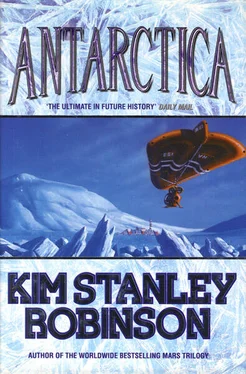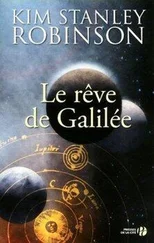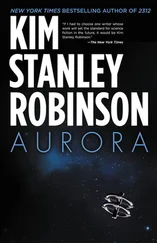The new shelter had been built in Christchurch and then disassembled for transport to the site, so now, even in the cold and dark and wind, it only took a few hours to reassemble it. When it was finished, and its footing securely anchored by piles of stones similar to the piles in the rock oval itself, the happy group tromped back down to camp, and began hauling up the sledges full of the old items.
Val helped pull these sledges up the slope, feeling peculiar as she did so. All these items had been pulled up this very ridge by the three men who had first come here; then they had been hauled away by Hillary, the first man to climb Everest, a half century later. Now up they went again, with Elliot and Geena and several other camera operators recording every step, and Arnold and George and Ann-Marie all shouting frantically for various angles and so on. That part was awful, really. But something about the feel of the load, tugging hard at her harness … Then one of the people hauling slipped, and for a second it looked like the lead sledge might slide back down and hit the following one. George and Arnold and several others (especially the people hauling the second sledge) shrieked in panic. Ridiculous, really. Still, there was something about it…. They looked like pilgrims. Perhaps, Val thought, there was always something ridiculous about a pilgrimage, something self-conscious and theatrical. Maybe that didn’t matter.
Eventually they got all the holy relics safely on the ridge. George and his assistants went to work installing the pieces in the display shelter. The shelter did indeed look like a larger version of the wooden box on Windvane Hill, and when the items were installed, glass would protect them. A fair number of visitors would then get to see these things here at the site; not as many as would have seen them in the Kiwi museums, true, but it would mean more to those who did see them. So George had argued, for ten long years, and now Val could see his point. And in the boom market of wilderness adventure travel, re-enacting the trip called the Worst Journey in the World was always going to be popular. So a fair number of people would see this in the long run.
When they were done Val walked over with the rest to have a look. It was a nice display. Most of the items had been left unlabelled, as they were self-explanatory. The spindly wooden sledge they had left on the rock hut, stripped to the grain and bleached by its first stay out here, was now placed next to the shelter in a kind of cradle of rock. Then under the roof and behind the glass of the shelter itself, were a pick-axe, a blubber stove, a tin of salt, a hurricane lamp with a spare glass, a tea towel, a canvas bag, a thermos flask, several little corked bottles of chemicals, a bulb atomizer, a magnifying glass, several microscope slides, seven thermometers (three Fahrenheit, one Celsius, one minimum reading, two oral); a lead weight on a string, five eye droppers, a pair of tweezers, thirty-five sample tubes, all corked; a skewer, a bottle of alcohol, two enamel dishes, four pencils, a glass syringe, four envelopes with “TERRA NOVA” printed on them; six plain envelopes, some perforated stickers, three rolls of Kodak film marked “TO BE DEVELOPED BEFORE MAY 1ST, 1911,” two tubes of magnesium powder for an Agfa camera flash; and then, along with the letters from Cherry-Garrard and Hillary concerning the disposition of the artifacts, reproductions of the two photographs that had been taken of the three explorers by Herbert Ponting, one before they took off, and the famous one after they got back, in which they were sitting at the big table inside the Cape Evans hut. Lastly, in George’s finest coup of all, they had the shells of the three penguin eggs that Cherry-Garrard had donated to the uncaring keepers at the South Kensington Museum of Natural History in England; George had tracked them down in a specimen drawer in Edinburgh University, and now they were in the display too.
The camera pros were checking out the old film and flash powder, oohing and aahing. It certainly did seem that these objects served to make the three travelers more real to the imagination. There was so much of it—and this was just the stuff they had left behind!
“They sure traveled heavy, didn’t they?”
“Wilson was interested in a lot of things.”
“And back when there was such a thing as amateur science.”
“Hey, unpack your bag and tack it up and it’d look just like this.”
“I don’t know—a tea towel? Seven thermometers? A chemistry set?”
George was now wandering around the ridge, looking at the new structure from all the angles he could. Mercifully the wind had died for the moment, so that people could pull up their ski masks. Val saw that George was stuffed with a contentment beyond happiness; serious, as in the midst of a religious ritual. This was his moment, and it had actually come off. Elliot and some other camerapeople were still filming, but everyone had forgotten them. As George passed by, Arnold said, “It’s beautiful, George! It’s a great idea! The people who make it here will really appreciate this.”
The little smile on George’s face was angelic.
Then he was busy organizing the start of the dedication ceremony he had worked up. While they did that, Val took a closer look at the two photos of the three explorers. After they had survived the hurricane on this ridge, and were given back their lives by the miraculous recovery of their tent, their struggle home had been a nightmare beyond anything a Footsteps expedition could reproduce, thank God. But they had made it back. And Ponting had taken this photo within an hour of their return, after they had cut their frozen outer clothing off of them and thawed them a bit over the stove. Wilson looked straight out at posterity, grim, shattered, knowing full well that he had escaped leading his friends to death by sheer luck alone. That he would just months later walk south with Scott to the Pole was amazing.
Cherry-Garrard also looked into the camera. He had suffered from depression much of the rest of his life, and in this photo he appeared crazed already, driven out of his mind by the extremities of the journey. Although possibly that was just his near-sightedness. But no; such naked looks, from both him and Wilson; that was not just astigmatism. Ponting had caught their souls on film, caught their souls in the act of slipping back into their bodies, abashed at having taken off prematurely for the afterworld.
And then there between them was Birdie Bowers, knocking back a mug as if just back from a walk down to the corner store—looking if anything more refreshed and rested than he had in the departure photo. Bowers! Henry Robert Bowers, God bless him, his beak of a nose profiled like a parrot’s; Birdie Bowers of the Antarctic, who never got cold, never got tired, never got discouraged; Bowers the Optimist, whose only fault appeared to have been an optimism so extreme that it sometimes made his companions want to strangle him. After the hurricane had relented, for instance, he had wanted to make one last visit to the penguins before retreating. And back at Cape Evans he had given a lecture explaining how perfect their Boy Scout equipment was, so perfect that it could not possibly be improved upon in any regard; this from a man wearing a canvas jacket and hat rather than a parka. And when he had been caught with some of their ponies on an ice floe that broke away from the ice shelf, he had refused to save himself until he could save the nags as well. And on the fatal trek to the Pole he had pulled the hardest of all, even deprived of his skis, and had cheerfully done most of the camp work as the other men slowly lost strength and died around him. And never a word of complaint, not right to his death; rather the opposite.
It must have taken a lot, Val thought darkly as she looked at the photo, to kill Birdie Bowers off. She felt a lot for that little man, she treasured his memory in particular, of all the old boys; because Val was an optimist herself. Or at least people often accused her of it. And indeed she did try to make the best of things. It seemed to her that that was the way one should behave—it was how her mother and grandmother, both dead now, had taught her to behave, by precept and example. And on adult reflection, she approved of the lesson fully. Making the best of things was what courage meant, in her opinion; that was right action in the face of life. And how hard it was, given how dark her thoughts had become, and how dismal everything sometimes appeared to her; how against the grain of her temperament it had become. But she kept at it anyway, as an act of the will. And all it did was get her laughed at, and most of what she said continually discounted or put down, as if being optimistic was a matter of a somewhat obtuse intelligence, or at best the luck of biochemistry, rather than a policy that had to be maintained, sometimes in the midst of the blackest moods imaginable.
Читать дальше











